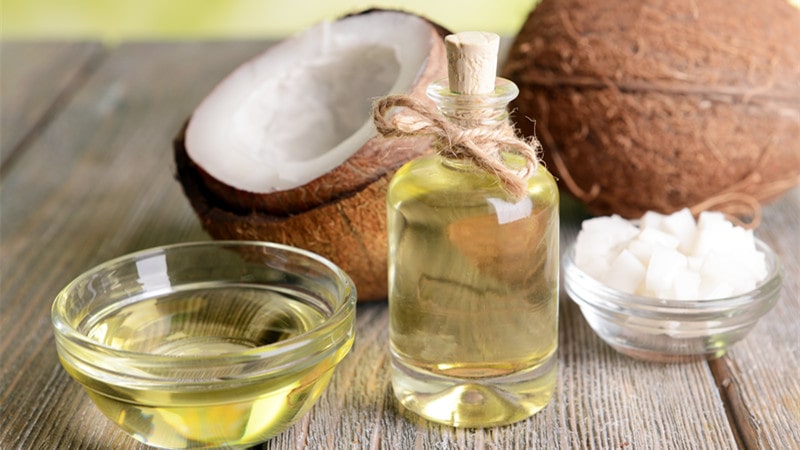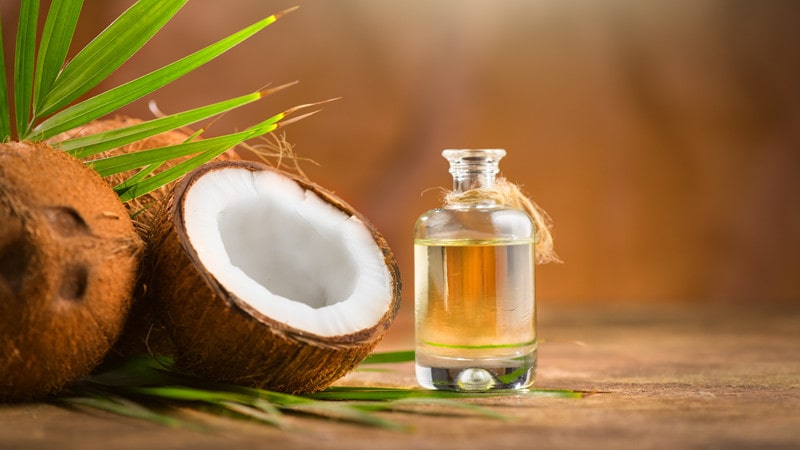
Nothing can impress quite like a warm, dazzling smile. A set of pearly whites is not only a sign of good grooming but a vital part of making a good first impression. But, the issue is that frequently going to the dentist for teeth whitening can get pricey — especially if you’re on a tighter budget.
In that case, your only option is to turn to DIY alternatives such as coconut oil to get that brilliant smile. Health enthusiasts swear that this superfood is one of nature’s best teeth-whitening solutions. But is this really true? Does coconut oil whiten teeth? Here is everything you need to know about this nourishing oil.
The Basics of Coconut Oil

If you have even a cursory knowledge of skincare, then you know what a powerhouse coconut oil is. This edible oil comes from the flesh of fully mature coconuts. During production, manufacturers will take ripened coconut meat from the shells and press it using a machine.
Depending on the type of coconut oil they’re making, they’ll use fresh or dried coconut flesh. Extra virgin coconut oil is made using fresh coconut. It’s also cold-pressed, meaning that the machine doesn’t apply any heat during the extraction.
On the other hand, manufacturers get refined coconut oil using dried meat, also known as copra. To squeeze the oil, they rely on the expeller method, a method that extracts the oil using heat.
Because of its rich nutritional profile, people add coconut oil to everything from beauty products to food, and sports supplements. The oil consists of medium-chain triglycerides, or MCTs, a type of fat the body quickly metabolizes for energy.
Though the research is still sparse, scientists speculate that MCTs can impact health in numerous ways, from promoting weight loss to softening the skin, and even managing degenerative brain disorders like Alzheimer’s.
However, to get the most out of the oil, it has to be high quality. Generally, most people agree that cold-pressed extra virgin coconut oil is superior. To get refined coconut oil, producers bleach the compound to remove the taste and odor.
This, in turn, causes the oil to lose some of its beneficial bacteria. The refining also degrades the MCTs, causing them to develop into trans-fats, a type of fat that negatively impacts cholesterol levels.
Does Coconut Oil Whiten Teeth?

Coconut oil is great for keeping your skin smooth, your stomach satisfied, and your mind alert and healthy. But did you know it can also make your teeth whiter? Experts speculate that the beneficial bacteria found in unrefined coconut oil can reduce plaque buildup, prevent gingivitis, and even stop bad breath.
The bacteria are encased in a film of fatty membranes that stick to tooth plaque. When you swivel the oil in your mouth, you help loosen the plaque and strip it from your teeth. This, in turn, leads to a healthier and whiter set of chompers.
The practice of ‘oil pulling’ or washing your mouth with coconut oil dates back centuries and is closely tied to Ayurvedic medicine. Therefore, it belongs more in the realm of alternative medicine. There isn’t any solid, scientific evidence to conclusively prove that coconut oil can lead to whiter teeth.
However, there is plenty of evidence that suggests that the oil is still healthy for you. What’s more, washing your mouth out with it isn’t harmful either. So, if you want to save on your dental bills, feel free to add a bit of coconut oil to your dental care regimen.
How to Whiten Teeth With Coconut Oil

In case you’re sold on the idea of using coconut oil for teeth whitening, there are a few things you should keep in mind.
First, choose a good quality oil. As established, extra virgin coconut oil is the best quality because it retains all of its beneficial bacteria. Granted, this type of oil is a bit more expensive than the refined version. However, when you consider how good it is for you, it’s more than worth the splurge.
When using the oil for your teeth, take no more than a teaspoon. If the oil has hardened, let it rest in your mouth for a few seconds until it completely liquifies.
Then, swivel it around gently, making sure it coats your entire mouth, from your gums to your front and back teeth. Overall, you can swish the oil for between 5-20 minutes, depending on your tolerance.
After you’ve finished, you can spit the oil out in your sink. However, it’s generally better if you discard it in a separate container because it can clog up your pipes. Likewise, you’ll want to wash out your mouth with lukewarm water once you’re done.
Though coconut oil generally tastes nice, it is still very greasy. Therefore, ingesting too much of it could potentially make you nauseous.








